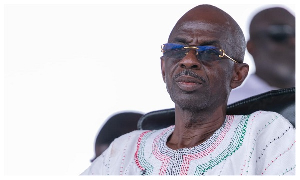The Oil Palm Development Association of Ghana (OPDAG), has appealed to the government to exempt the oil palm sector from the Benchmark Valuation Policy (BVP).
According to OPDAG, this would safeguard the sector against collapse and guarantee the economic livelihoods of players in the oil palm value chain in the country.
The Government in 2019 introduced the BVP, slashing import duties on general goods and vehicles at the port by 50 percent and 30 percent respectively.
Since then, the Association said, the market had been flooded with imported vegetable oil, which was sold at a cheaper price than the locally made one.
That, the OPDAG said, was pushing players in the oil palm industry out of business to the advantage of the importers.
Prior to the introduction of the BVP, the Association said, a 25-litre (‘Yellow Gallon’) of vegetable oil produced locally was sold at GH¢145, while the imported one was sold at GH¢150.
However, when the policy was implemented, whereas the price of the locally produced vegetable oil was maintained, the price of the imported vegetable was reduced and sold between GH¢75 and GH¢120 per a 25-litre gallon.
“This situation has affected local players in the industry, as refineries continue to shut down and lay off workers. A greater number of farmers have also found their way out of business as a result of the dwindling fortunes of the sector,” the President of OPDAG, Samuel Avaala told the Ghanaian Times in Accra.
“The Benchmark Valuation Policy has virtually brought the sector onto its knees, [and] coupled with the outbreak of the Corona Virus pandemic, the Association fears the worst for the industry,” President of the Association said.
Mr Avaala said the policy may be well-intentioned but had not been in the interest of the local oil palm producers and so urged the government to take a second look at it to protect players in the industry.
Business News of Tuesday, 15 September 2020
Source: ghanaiantimes.com.gh













